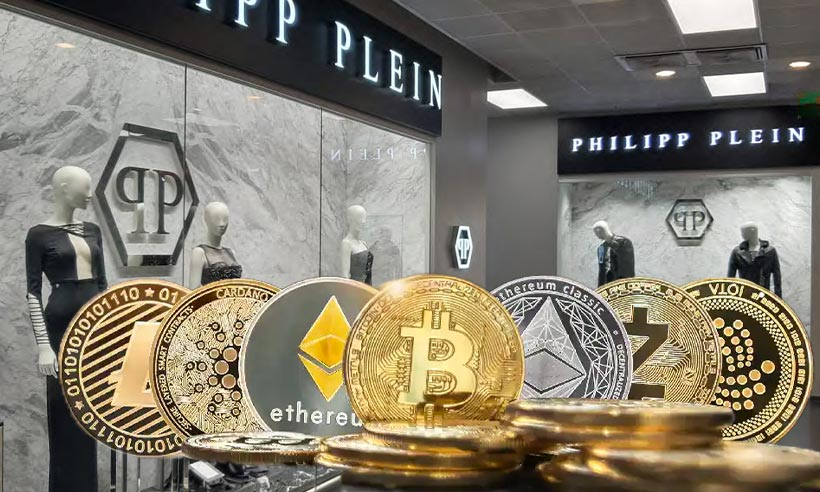Update published May 17, 2020:#
The global crypto meltdown, which took place last week, saw Bitocin and other cryptocurrencies dropping to levels as low as before the crypto surge back in 2020. Ethereum, one of the most popular currencies used when trading NFTs, fell roughly 22 percent, while Bitcoin dropped to around 27,000 — a 12 percent fall from its current value. Since the crash, however, prices have started to recover slightly, with Bitcoin and Ethereum climbing back by around 7 percent, as reported over the weekend.
Given the current volatility of the crypto landscape, is it a wise time for luxury brands to be launching and establishing new forms of cryptocurrency? Only one week before the market crunch, Gucci announced the testing of a cryptocurrency initiative, one where consumers could use their digital wallets to purchase tangible goods in the brand’s physical stores. This was just another addition to the roster of luxury labels testing the waters with native currencies and crypto crossovers. Meanwhile, the question stands as to whether consumers can regain their trust in this notoriously volatile market, and whether implementing strategies like these right now are less innovative and more ill-considered.
Published April 4, 2022#
What happened
On April 1, Tiffany & Co. staged a timely prank on its consumers as an April Fools joke, claiming that the label was venturing into crypto-trading. “TiffCoin,” the brand’s supposed title for its faux cryptocurrency, went viral on social media after the retailer posted a promotional video announcing its release. After the truth behind the hoax was unveiled, however, Tiffany disclosed that the TiffCoin was indeed real, but in the format of a minted 18k gold coin as part of a 499 limited edition collectible series priced at 9,999 apiece. The coin went on sale at 11:11am the next day, with each collectible giving its holder access to future Tiffany happenings.
The Jing Take
Although Tiffany’s foray into cryptocurrency may have been a hoax, the news comes as more luxury brands introduce avenues into the metaverse and establish their digital presence. Last year saw the Italian luxury streetwear brand Philipp Plein become the first major fashion label to accept cryptocurrency as an official payment option. Furthermore, Singaporean fashion company CHARLES & KEITH followed suit with their own crypto payment mode earlier this year, while Off-White implemented the use of cryptocurrency as payment in their London, Milan, and Paris flagship stores last week.
But these metaversal announcements don't come without implications. Trading cryptocurrency for physical goods is often noted as a risky and unreliable means of exchange. Crypto markets are notoriously volatile, and the price for which a customer buys a product for today could dramatically decline by tomorrow, with drops in cryptocurrency notably difficult to monitor. With this in mind, the resale-ability of goods is a desirable asset for customers looking to invest in luxury purchases, meaning it is imperative that products hold their value as much as possible, minus the instability of the crypto market.
In an aim to avoid this, Off-White will use a LUNU POS terminal that finds the best currency-to-crypto exchange rate at the time of transaction, and is compatible with multiple crypto-currency wallets. Similarly, CHARLES & KEITH partnered with crypto payment platform TripleA, alongside the Financial Crimes Enforcement Network for added digital-trading security.
The recent crackdown on crypto-trading regulations also poses more challenges for luxury labels looking to implement crypto-transactions. More stringent restrictions are now being administered globally, such as China’s ban on cryptocurrency trading to Europe’s talks of compulsory regulations on identifying creditors and debtors.
Nevertheless, these restrictions are yet to dissuade brands from experimenting with virtual exchanges. The growing accessibility of luxury labels within the metaverse is setting Web3 up to be an exciting and innovative space, while the greenlighting of these digital-for-physical exchanges offers consumers alternative assets to invest in.
The Jing Take reports on a piece of the leading news and presents our editorial team’s analysis of the key implications for the luxury industry. In the recurring column, we analyze everything from product drops and mergers to heated debate sprouting on Chinese social media.


